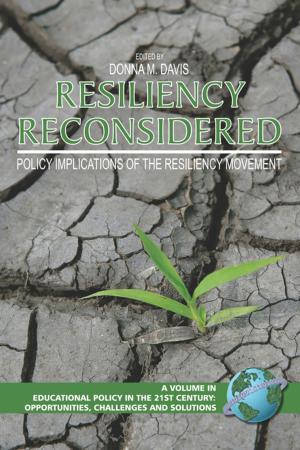Emerging Ethical Issues of Life in Virtual Worlds
Business & Finance, Business Reference, Business Ethics, Management & Leadership, Management, Human Resources & Personnel Management| Author: | ISBN: | 9781607523796 | |
| Publisher: | Information Age Publishing | Publication: | January 1, 2010 |
| Imprint: | Information Age Publishing | Language: | English |
| Author: | |
| ISBN: | 9781607523796 |
| Publisher: | Information Age Publishing |
| Publication: | January 1, 2010 |
| Imprint: | Information Age Publishing |
| Language: | English |
Virtual Worlds are being increasingly used in business and education. With each day more people are venturing into computer generated online persistent worlds such as Second Life for increasingly diverse reasons such as commerce, education, research, and entertainment. This book explores the emerging ethical issues associated with these novel environments for human interaction and cuttingedge approaches to these new ethical problems. This volume’s goal is to put forward a number of these virtual world ethical issues of which research is only commencing. The developing literature specifically regarding virtual world ethics is a recent phenomenon. Research based on the phenomenon of virtual world life has only been developing in the past four years. This volume introduces pathbreaking work in a field which is only just beginning to take shape. It is ideal as both as a library reference and a supplementary text in upperdivision courses focused on the issues of applied ethics and new media. It is unique in being one of the first volumes specifically addressed to ethical problems of the “metaverse”. This volume includes articles from authors from around the world exploring topics such as: employing rationalist and casuistic approaches to the controversial topic of “virtual rape” yield an increased understanding of how virtual worlds ought to be designed, the relationship between the ethical and legal dimensions of virtual world users’ participation in “paratexts”, utilitarian consideration of harm and freedom in the case of virtual pedophilia, norms of research ethics in virtual worlds, the ethical implications of employing virtual worlds as tools for medical education and experimenting with healthcare services, the ethics of the collective action of virtual world communities, consideration of the virtue and potential of cosmopolitanism in virtual worlds, Deleuzian ethical approaches to the experience of the disabled in virtual worlds, the ethics of virtual world design, and the ethical implications of the “illusion of reality” presented by virtual worlds.
Virtual Worlds are being increasingly used in business and education. With each day more people are venturing into computer generated online persistent worlds such as Second Life for increasingly diverse reasons such as commerce, education, research, and entertainment. This book explores the emerging ethical issues associated with these novel environments for human interaction and cuttingedge approaches to these new ethical problems. This volume’s goal is to put forward a number of these virtual world ethical issues of which research is only commencing. The developing literature specifically regarding virtual world ethics is a recent phenomenon. Research based on the phenomenon of virtual world life has only been developing in the past four years. This volume introduces pathbreaking work in a field which is only just beginning to take shape. It is ideal as both as a library reference and a supplementary text in upperdivision courses focused on the issues of applied ethics and new media. It is unique in being one of the first volumes specifically addressed to ethical problems of the “metaverse”. This volume includes articles from authors from around the world exploring topics such as: employing rationalist and casuistic approaches to the controversial topic of “virtual rape” yield an increased understanding of how virtual worlds ought to be designed, the relationship between the ethical and legal dimensions of virtual world users’ participation in “paratexts”, utilitarian consideration of harm and freedom in the case of virtual pedophilia, norms of research ethics in virtual worlds, the ethical implications of employing virtual worlds as tools for medical education and experimenting with healthcare services, the ethics of the collective action of virtual world communities, consideration of the virtue and potential of cosmopolitanism in virtual worlds, Deleuzian ethical approaches to the experience of the disabled in virtual worlds, the ethics of virtual world design, and the ethical implications of the “illusion of reality” presented by virtual worlds.















